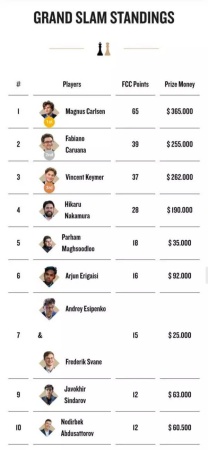Georgia Gardiner, a 28-year-old mother from Leeds, UK, initially dismissed her persistent nausea and stomach cramps as mere heartburn. However, after months of misdiagnosis and declining health, she received the devastating news: she has a rare and aggressive form of stomach cancer called linitis plastica, with a prognosis of just 12 months to live.

Last summer, Gardiner began experiencing debilitating symptoms, including constant nausea, severe stomach cramps, and a complete loss of appetite. Doctors attributed her condition to acid reflux and prescribed antacids. Despite making numerous visits to her general practitioner and local hospital, her concerns were repeatedly downplayed. Doctors suggested it was likely just indigestion or heartburn.
As her condition worsened, Gardiner lost a significant amount of weight and struggled to keep food down. After months of persistent advocacy, she was finally referred for specialized testing.
An endoscopy revealed the heartbreaking truth: Gardiner had linitis plastica, also known as "leather bottle stomach." This rare stomach cancer causes the stomach lining to thicken, impairing its ability to function properly.

By the time of her diagnosis on June 13, 2024, the cancer had already metastasized to her lymph nodes and other organs. Doctors delivered the grim prognosis: terminal illness with approximately 12 months to live, focusing treatment on managing symptoms and improving quality of life.
"I felt invincible. I never thought that I would develop cancer at 28. My world fell apart when I was informed that it is incurable," Gardiner shared.
Gardiner is now dedicated to cherishing her remaining time with her fiancé, Callum Scott, and their two-year-old son, Arlo. The couple has accelerated their wedding plans to create lasting memories.
"The thing that breaks me is how much I’ll miss in Arlo’s life. He gives my life purpose," she expressed. Despite the challenges, she remains resolute in her fight against cancer for her son's sake.

Gardiner urges others to be proactive about their health: "Had I been taken seriously sooner, perhaps we could have nipped it in the bud before it spread. I just want others to get it in time." Her message is clear: listen to your body, and advocate for yourself when seeking medical care.

Linitis plastica is a rare type of adenocarcinoma affecting the glands of the stomach lining. It causes the stomach walls to stiffen and thicken, often referred to as "leather bottle stomach." Due to its rapid progression and subtle early symptoms, it is frequently diagnosed at an advanced stage.
Unfortunately, the aggressive nature of linitis plastica makes it difficult to treat, particularly after it has spread beyond the stomach wall.
The exact cause of linitis plastica remains unknown. However, it is strongly associated with diffuse-type gastric adenocarcinoma. Contributing factors may include:
Newer articles
Older articles
 Hetmyer's Heroics: Orcas Stun MI New York with Last-Ball Six in Record-Breaking MLC Chase
Hetmyer's Heroics: Orcas Stun MI New York with Last-Ball Six in Record-Breaking MLC Chase
 Android Users Face Critical Security Risks: Update Your Devices Now, Warns Government Agency
Android Users Face Critical Security Risks: Update Your Devices Now, Warns Government Agency
 Greg Chappell Hails Rishabh Pant's "Revolutionary" Batting, Likens Him to Gilchrist
Greg Chappell Hails Rishabh Pant's "Revolutionary" Batting, Likens Him to Gilchrist
 Dog-Sized Dinosaur Fossil Unearths New Insights into Prehistoric Life Alongside Giants
Dog-Sized Dinosaur Fossil Unearths New Insights into Prehistoric Life Alongside Giants
 West Indies Captain Chase Slams Umpiring After Test Loss, Demands Accountability
West Indies Captain Chase Slams Umpiring After Test Loss, Demands Accountability
 IRCTC's AI Chatbot, AskDisha 2.0, Streamlines Train Ticket Booking, Refunds & Information
IRCTC's AI Chatbot, AskDisha 2.0, Streamlines Train Ticket Booking, Refunds & Information
 Freestyle Chess India Event Scrapped Due to Sponsorship Issues; Carlsen Absence Confirmed
Freestyle Chess India Event Scrapped Due to Sponsorship Issues; Carlsen Absence Confirmed
 Moto G54 Gets Significant Price Drop in India: Check Out the New Affordable Price Tag
Moto G54 Gets Significant Price Drop in India: Check Out the New Affordable Price Tag
 New Zealand Cricket Announces Packed 2025-26 Home Schedule Featuring Australia, England, West Indies & South Africa
New Zealand Cricket Announces Packed 2025-26 Home Schedule Featuring Australia, England, West Indies & South Africa
 Converting JPG to PDF: A Comprehensive Guide for Preserving Image Quality and Ensuring Accessibility
Converting JPG to PDF: A Comprehensive Guide for Preserving Image Quality and Ensuring Accessibility